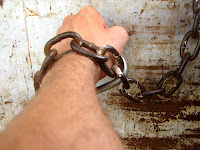The Hard Side of Ministry
 I earlier looked at comments from Mark Driscoll on loneliness in leadership. He has now released the second part of his reflection. This part is mostly advice and it’s pretty decent. I particularly like the following:
I earlier looked at comments from Mark Driscoll on loneliness in leadership. He has now released the second part of his reflection. This part is mostly advice and it’s pretty decent. I particularly like the following:
…Too often leaders do not practice sufficient times of silence and solitude when such times can be invaluable to working on their life rather than staying at the office and continue working in it until they become angry, unhealthy, depressed, and burned out…
…Rather than picking up the phone, sending an email, or taking action, I have decided to wait twenty-four hours on any non-emergency issue and sincerely and specifically pray for God to go before me to move other people to meet the need or for God to take care of it himself. I have been able to check more than half of the items off my to do list by doing nothing but praying, as God has faithfully revealed himself to care more about my ministry than I do.
Coincidentally Mikey has linked to another Driscoll-related piece on why pastors want to quit. The following reasons have been listed in feedback from pastors. I’ve been to most of these places:
- To Protect My Family – the cost of ministry upon wife and kids is more than most people know.
- Criticism – although once you’ve been through the fire criticism can start leading to added resolve rather than depressed resignation.
- The Hard Work of Shepherding – you can’t just “launch” a church you have to shepherd the flock. Personally, the need to shepherd very rarely gets me down – it’s the feelings of inadequacy about how to help others. You can’t live other people’s lives for them.
- Restlessness – itchy feet happens, you learn to deal with it.
- Coveting Others’ Gifts – Quote: “One pastor named his struggle for what it is: ‘coveting others’ gifts, leadership, fruitfulness.’
- Lack of Change – Stagnation, walking through molasses, spinning your wheels against the immovable ojbect.
In the end, it’s great that God is God. Ministry is a series of ordinary quiet miracles.
Photo credit: http://www.sxc.hu/profile/bigevil600





